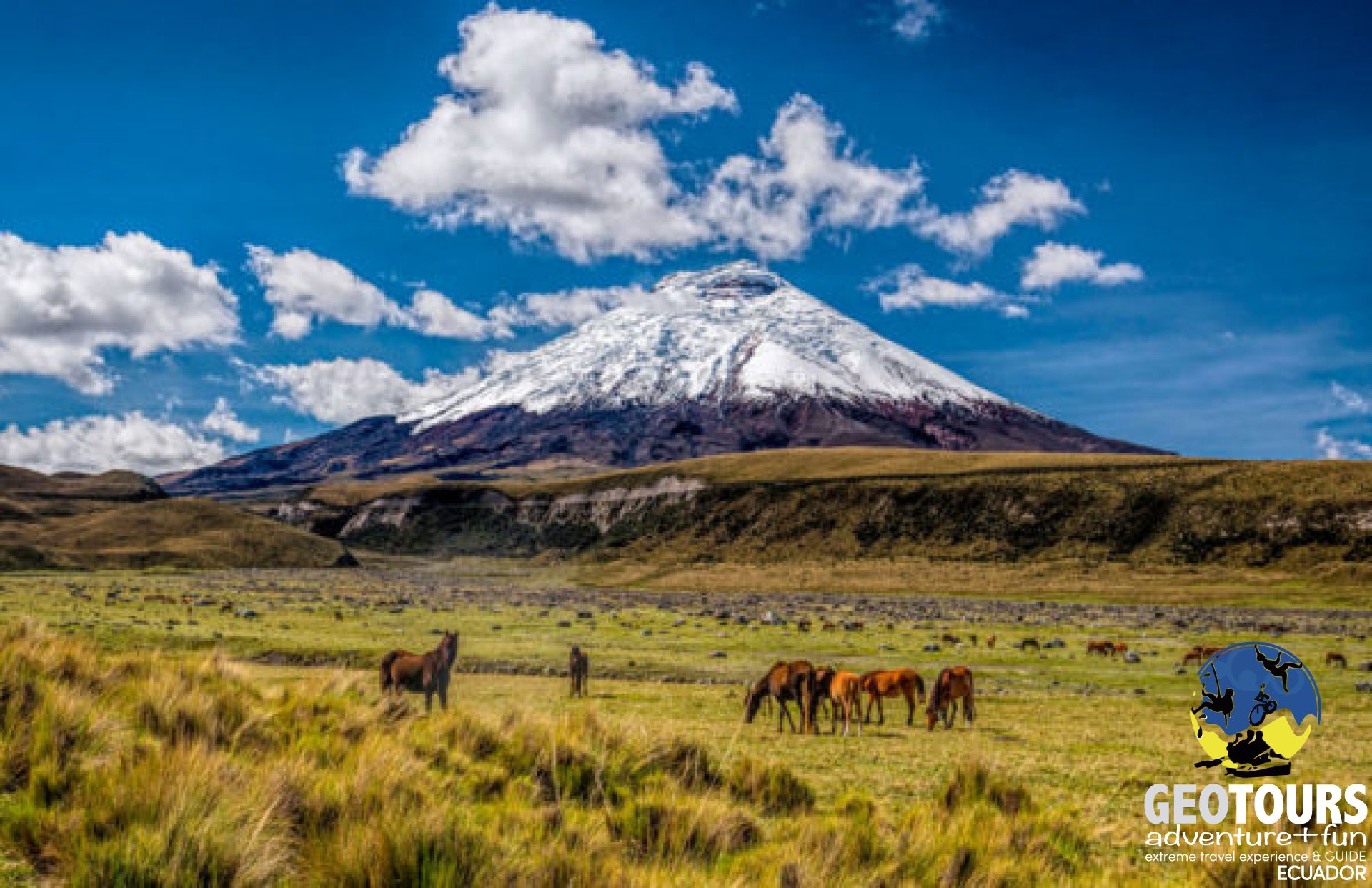

The Cotopaxi volcano is surrounded by the páramo ecosystem that borders 3000 masl and by other volcanoes such as Sincholahua (4873 masl), Rumiñahui (4722 masl), and Quilindaña (4876 masl). It belongs to the National Park, the same one that bears the name of the Cotopaxi volcano. Ecuador is in third place in the world ranking compared to countries with the largest number of volcanoes, its mountain range allows volcanoes to be found linearly from north to south, thus creating the avenue of volcanoes.
The Cotopaxi volcano has an elevation of 5897 meters above sea level, when you climb it you will be able to appreciate the avenue of volcanoes and when you reach the summit you will be able to see in a better way, what Alexander Von Humboldt once called Avenue of Volcanoes to the route inside the Andes Mountains that are home to 44 volcanoes of which 15 remain active Cotopaxi being one, keep in mind that Ecuador has around 87 volcanoes of which 27 are active.
Its name "Cotopaxi" is an Ecuadorian place name that means "neck of the moon" in the local language as well as "throat of fire" considered the highest active volcano in the world, its shape is an almost perfectly symmetrical cone. Ecuadorians and mainly the people surrounding the volcano consider it dangerous and have their respect for it, although they do not mind living next to it, something that makes Ecuadorians peculiar since they are not afraid to sleep among volcanoes.
Access to Cotopaxi Volcano
Being located in the Cotopaxi National Park, you need to enter through its two entry points, which are:
Ten on account
Currently, the volcano is on Yellow alert according to the latest report from the Risk Management Secretariat (SNGRE) due to moderate activity.
To protect the safety of each person, they are denied entry to carry out the climbing activity. But the different activities in the park will remain enabled until the José Ribas Refuge.
Recommendations
If you are going to visit this national park, it is recommended to wear a mask, glasses, protective caps, a scarf, and clothing that completely covers the skin, as well as a small preventive kit.